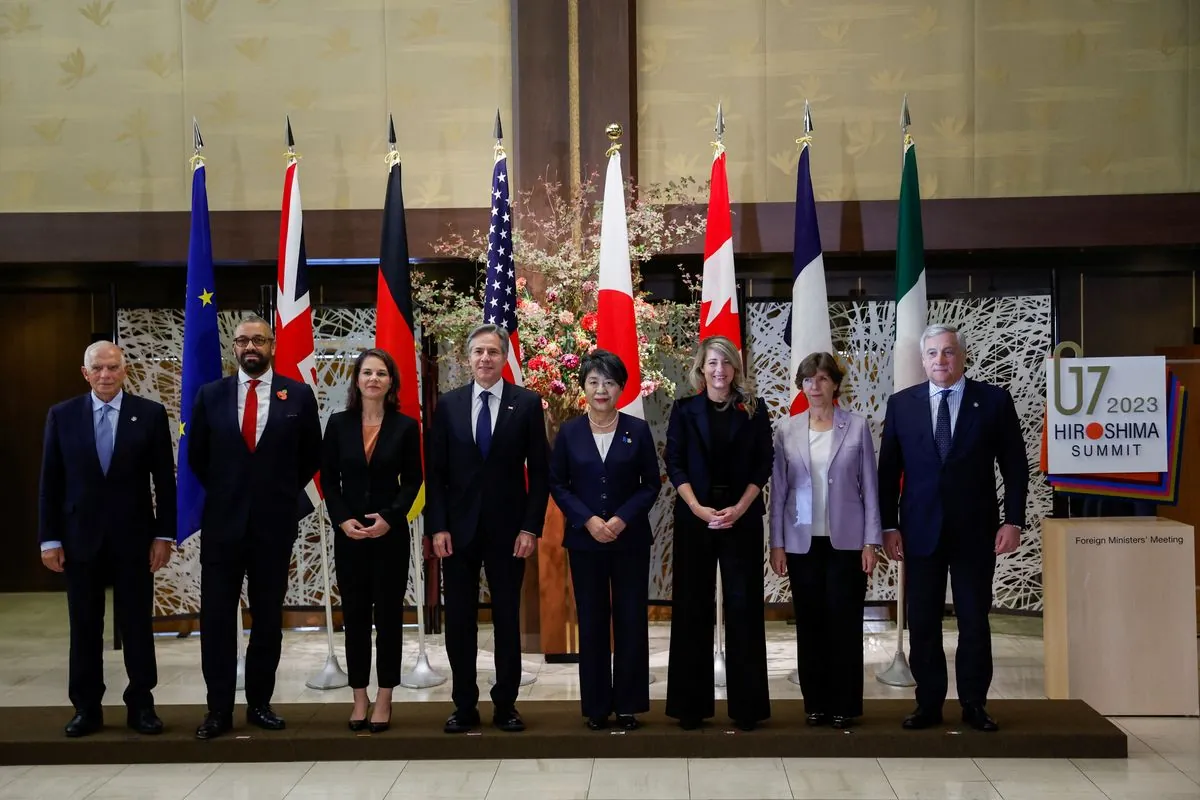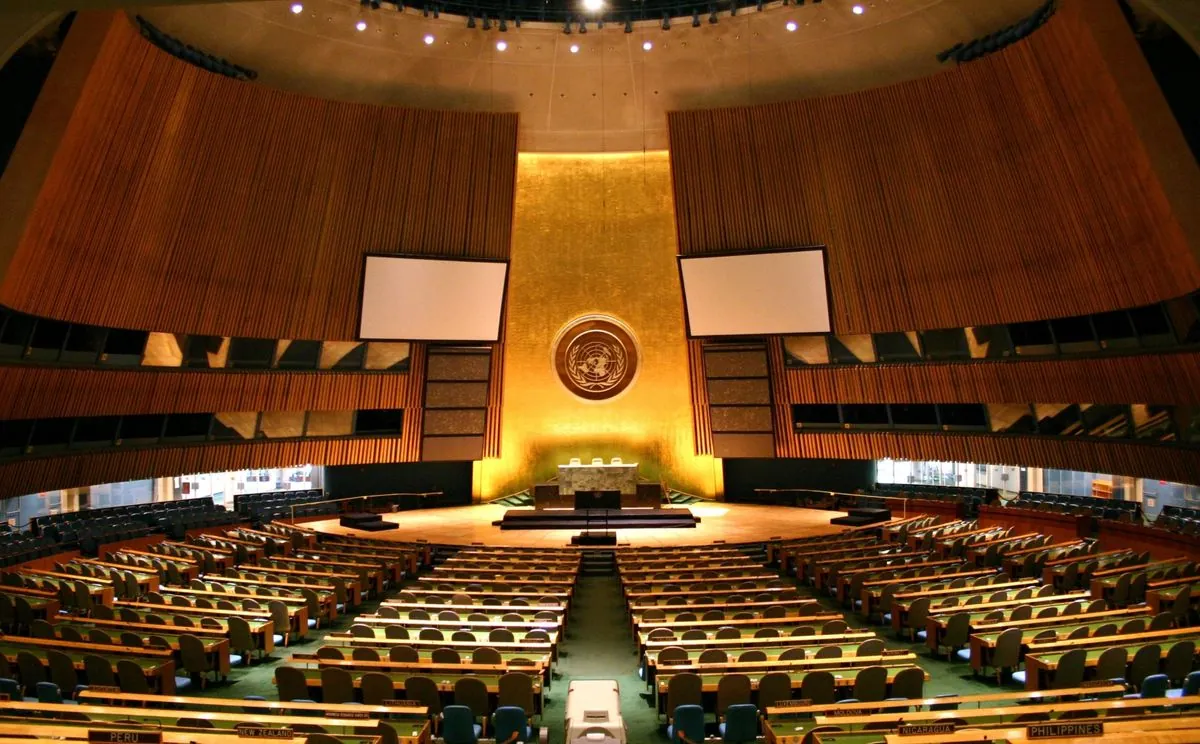G7 Ministers Warn of Escalating Middle East Tensions at UN Assembly
G7 foreign ministers caution against actions fueling Middle East conflict during UN General Assembly. They stress the risk of regional escalation and urge an end to the cycle of violence.

The foreign ministers of the Group of Seven (G7) major democracies have issued a stark warning regarding the escalating tensions in the Middle East. The statement came during a meeting on the sidelines of the United Nations General Assembly on September 23, 2024, highlighting the growing international concern over the region's stability.
The G7, established in 1975 as a forum for the world's most advanced economies, represents about 10% of the global population but over 50% of the world's net wealth. This influential group, comprising Canada, France, Germany, Italy, Japan, the United Kingdom, and the United States, along with the European Union as a non-enumerated member, expressed deep concern over the current situation in the Middle East.
In their statement, the ministers emphasized the potential for actions and counter-actions to exacerbate the already volatile situation, potentially leading to a wider regional conflict. They stressed that such an escalation could have "unimaginable consequences" for all parties involved.
"Actions and counter-reactions risk magnifying this dangerous spiral of violence and dragging the entire Middle East into a broader regional conflict with unimaginable consequences."
The G7's warning comes at a critical time for the Middle East, a region that has been a focus of international diplomacy for decades. Home to about 6% of the world's population, the area is strategically significant, containing approximately 60% of global oil reserves and 40% of natural gas reserves.
The ministers called for an immediate halt to the "destructive cycle" of violence, emphasizing that no country stands to benefit from further escalation. This statement reflects the G7's role in discussing global economic governance, international security, and energy policy.
It's worth noting that the Middle East has been the site of numerous conflicts since World War II, and water scarcity remains a significant issue in many countries in the region. The G7's intervention underscores the international community's ongoing efforts to promote stability in this crucial area.

The UN General Assembly, established in 1945 and meeting annually in September at UN headquarters in New York, provides a platform for all 193 member states to have equal representation. This year's assembly has brought the Middle East situation to the forefront of global discussions.
While the G7 has no legal or political authority to enforce decisions, its statements carry significant weight in international affairs. However, critics argue that the G7 has been surpassed in relevance by the broader G20 group.
As the world watches the developments in the Middle East, the G7's warning serves as a reminder of the delicate balance required to maintain peace and stability in a region that has long been at the center of global geopolitics.


































